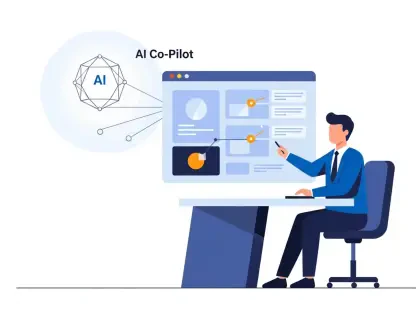The integration of artificial intelligence (AI) into software testing was supposed to revolutionize the way developers approached some of the most tedious tasks, promising increased efficiency and reduced time spent on repetitive processes. However, despite the significant advancements and adoption of AI by developers, a recent survey commissioned by Rainforest has revealed a more complex reality. While 75% of developers using open-source automation frameworks have incorporated AI into their workflows, these developers continually find themselves dedicating substantial time to tasks like test writing and maintenance.
Mike Sonders, the head of marketing at Rainforest, suggests that the complexity of products in AI-adopting organizations could be a contributing factor to why these developers are spending more time on test suite upkeep compared to those not using AI. The nuanced nature of their projects might require extensive testing, and while AI tools are designed to streamline these processes, they may not yet be capable of handling the intricate requirements of sophisticated software. As a result, the productivity gains once anticipated from AI’s involvement in testing automation have not materialized as expected, especially for larger teams working within open-source frameworks.
Small Teams and Open Source Frameworks
The surprising aspect of Rainforest’s findings lies in the differences observed between small, agile teams and larger teams when it comes to benefiting from AI tools. Smaller teams that employ AI and open-source frameworks seem to manage more effectively in terms of keeping their test suites updated. One possible explanation is that smaller teams might lack formal testing policies, which could make maintaining automated test suites more challenging without AI’s assistance. These teams rely less on rigid structures and more on flexibility, potentially allowing AI tools to be more beneficial in their contexts.
Despite this, the expected productivity gains have not been uniformly experienced across all teams. Larger teams still find themselves entangled in the time-consuming processes of test creation and maintenance. This discrepancy has prompted discussions about the actual efficacy of AI tools and whether they have met the industry’s expectations for streamlining software testing. There needs to be a closer examination of how these tools are being utilized and the specific challenges faced by developers in different organizational settings.
Confidence in AI and No-Code Tools
Another notable finding from the survey is the increasing confidence developers have in AI tools. Over half of the developers surveyed reported improved trust in AI’s accuracy and security over the past year. These attitudes reflect a growing acceptance of AI’s potential to assist in automating tests, even if the outcomes aren’t always as significant as expected. This increasing confidence can be attributed partly to continuous improvements in AI technologies and their integration into development workflows.
The study also highlighted that an overwhelming majority of developers, more than 90%, are utilizing open-source frameworks. Interestingly, those using no-code tools for test automation spend significantly less time on test maintenance than those sticking with traditional open-source frameworks. This finding is particularly pronounced in mid-sized teams consisting of 11-30 developers, where AI integration sometimes results in longer test creation and maintenance times. For many developers, no-code tools offer a more efficient alternative, allowing them to focus more on coding and less on the repetitive aspects of software testing.
Challenges and Future Advances
The integration of artificial intelligence (AI) into software testing was expected to transform how developers handled some of the most monotonous tasks, promising heightened efficiency and less time on repetitive processes. However, despite AI’s significant advancements and its adoption by developers, a recent survey by Rainforest reveals a more complicated reality. Although 75% of developers using open-source automation frameworks have integrated AI into their workflows, they still devote substantial time to test writing and maintenance.
Mike Sonders, Rainforest’s marketing head, suggests that this could be due to the complexity of products in AI-using organizations. These developers might be spending more time on test suite upkeep because their projects are intricate, demanding extensive testing. While AI tools aim to streamline these tasks, they might not yet manage the detailed requirements of sophisticated software. Consequently, the anticipated productivity improvements from AI in testing automation have not been realized as expected, particularly for larger teams using open-source frameworks.









